Lessons from the Last Frontier: Civic Innovation Fellows Explore Voting Reform in Alaska
September 25, 2025
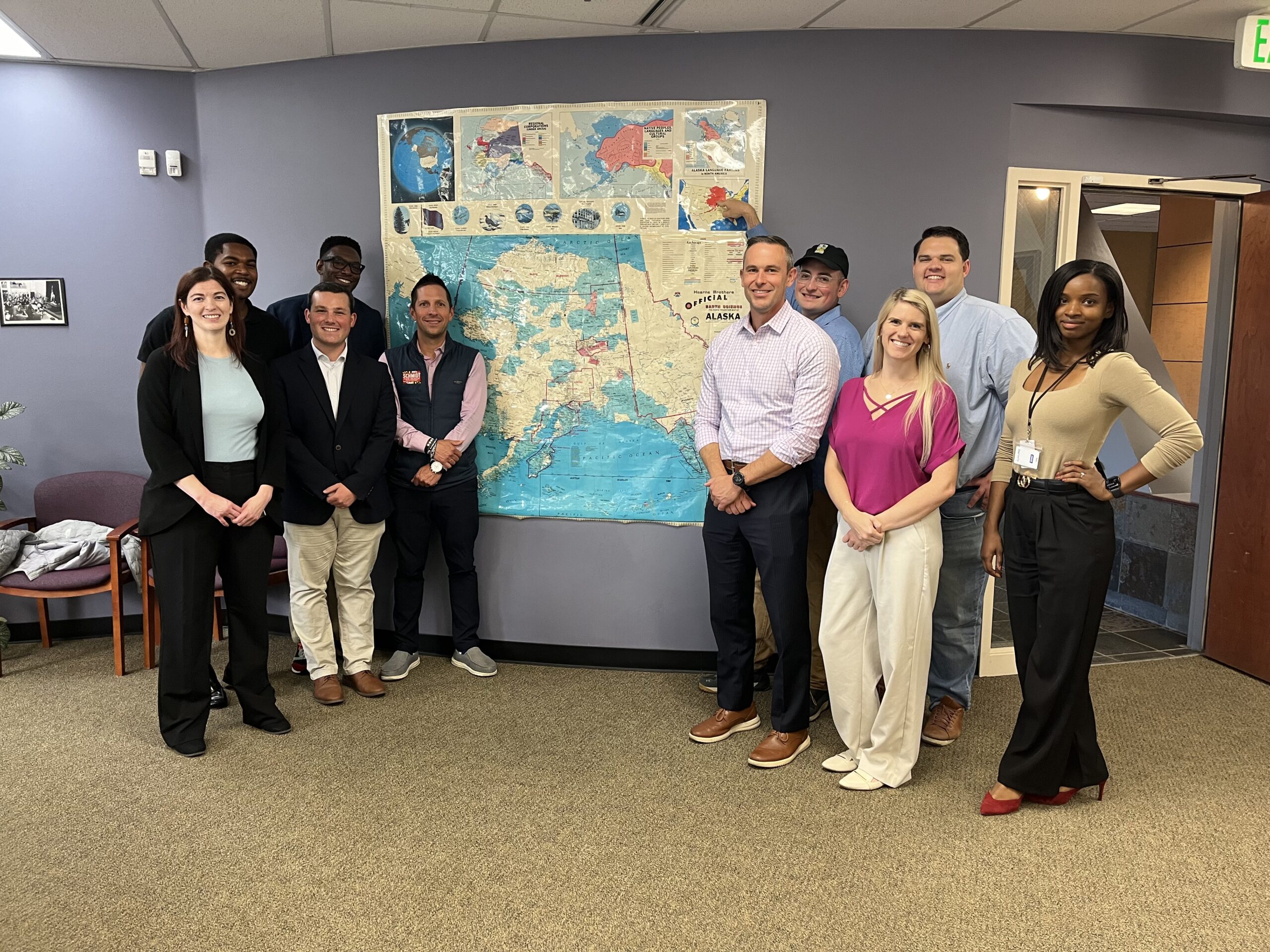
By Catherine Nichols
In August 2025, five young lawmakers from Alabama, Delaware, Iowa, Maryland, and Mississippi — all participants in Future Caucus’ Civic Innovation Fellowship — traveled to Anchorage, Alaska, for an extraordinary field trip.
The Civic Innovation Fellowship equips a bipartisan group of early-career legislators with tools to strengthen democracy and foster cross-partisan collaboration. This year’s experiential learning trip was designed to bring those ideas to life in a state that has reimagined its political system for the 21st Century; with its open primaries and ranked-choice general elections, Alaska provided the perfect setting to examine how structural reforms can shift incentives, broaden civic participation, and reshape political culture.
The fellowship emphasizes not just classroom-style learning, but peer exchange and shared experiences that deepen relationships across geography and party lines. Against the dramatic backdrop of Alaska’s glaciers, mountains, and long summer light, fellows had the chance to step away from the pressures of their own capitals and engage each other in meaningful, focused dialogue. The opening day combined orientation with exploration: a drive along Turnagain Arm, framed by mountains and a ghost forest, followed by a visit to the Alaska Wildlife Conservation Center. That evening, former Alaska State Representative (and Future Caucus alum) Jennifer Armstrong and her husband, Ben, welcomed the fellows for a Jeffersonian dinner centered on civic innovation, featuring wild Chinook salmon they had caught themselves.
At the core of the trip was Alaska’s unique voting system, which combines open primaries with ranked-choice voting in state and federal elections. On the second day of the trip, fellows met with architects, implementers, and practitioners who have been at the heart of these reforms.
They heard from Scott Kendall, often called the “father of Alaska’s ranked choice voting”; Karina Waller, state director for U.S. Sen. Lisa Murkowski; Bryan Schroder, former U.S. Attorney and state leader of Veterans for All Voters; and Juli Lucky, executive director of Alaskans for Better Elections. Fellows also joined a candid conversation between State Sen. Cathy Giessel and Future Caucus member Sen. Löki Tobin, who serve together in a newly formed bipartisan coalition in Juneau. Through these exchanges, the fellows saw how reforms have shifted Alaska’s political dynamics, empowering elected officials to focus more on governance and problem-solving, rather than partisan hard-lining. Giessel and Tobin described how the system helped relieve partisan pressures and emboldened them to work across divides on issues critical to Alaskans.
Alaska’s unusually high share of Independent voters added another dimension to the fellows’ learning. Over lunch with Anchorage Mayor Suzanne LaFrance, herself an Independent, the group explored what it means to govern outside traditional party structures. Later, a tour of a regional election office gave the fellows a close-up view of how reforms are administered on the ground, underscoring the logistical and cultural factors that make Alaska’s system unique.
While the agenda was policy-rich, the fellowship also values the informal, trust-building moments that happen outside of structured sessions. One evening brought the group by tram to the top of Mount Alyeska, overlooking valleys and seven glaciers more than 2,300 feet below. August sunlight in Alaska lasts until nearly 10 p.m., and fellows soaked in the sunlight over lively conversation, strengthening their understanding of civic strategies across the country as well as their own relationships.
The final morning was set aside for reflection. Although all five participants came from superminority parties in their legislatures, they acknowledged that no single model of cross-partisan collaboration fits every state. Still, the lessons from Alaska – coupled with insights from one another – provided concrete ideas they could adapt at home. The Civic Innovation Fellowship is built on the belief that lawmakers learn best not only by studying policies, but by experiencing them in action and engaging peers who share their challenges.
By immersing themselves in Alaska’s civic innovations, the fellows left with more than just knowledge. They gained perspective, strengthened relationships, and renewed confidence that change is possible — in their states, and across America.
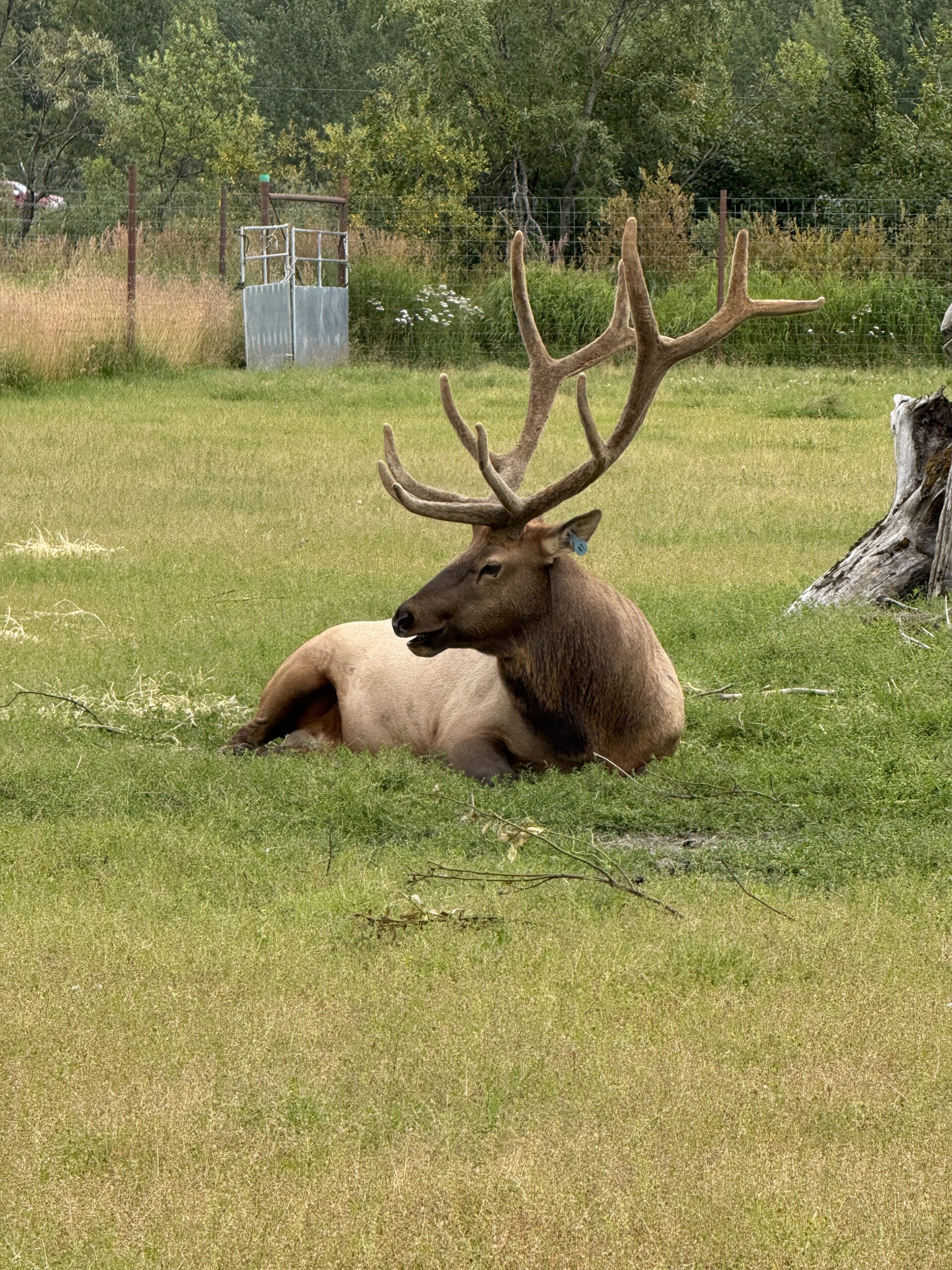
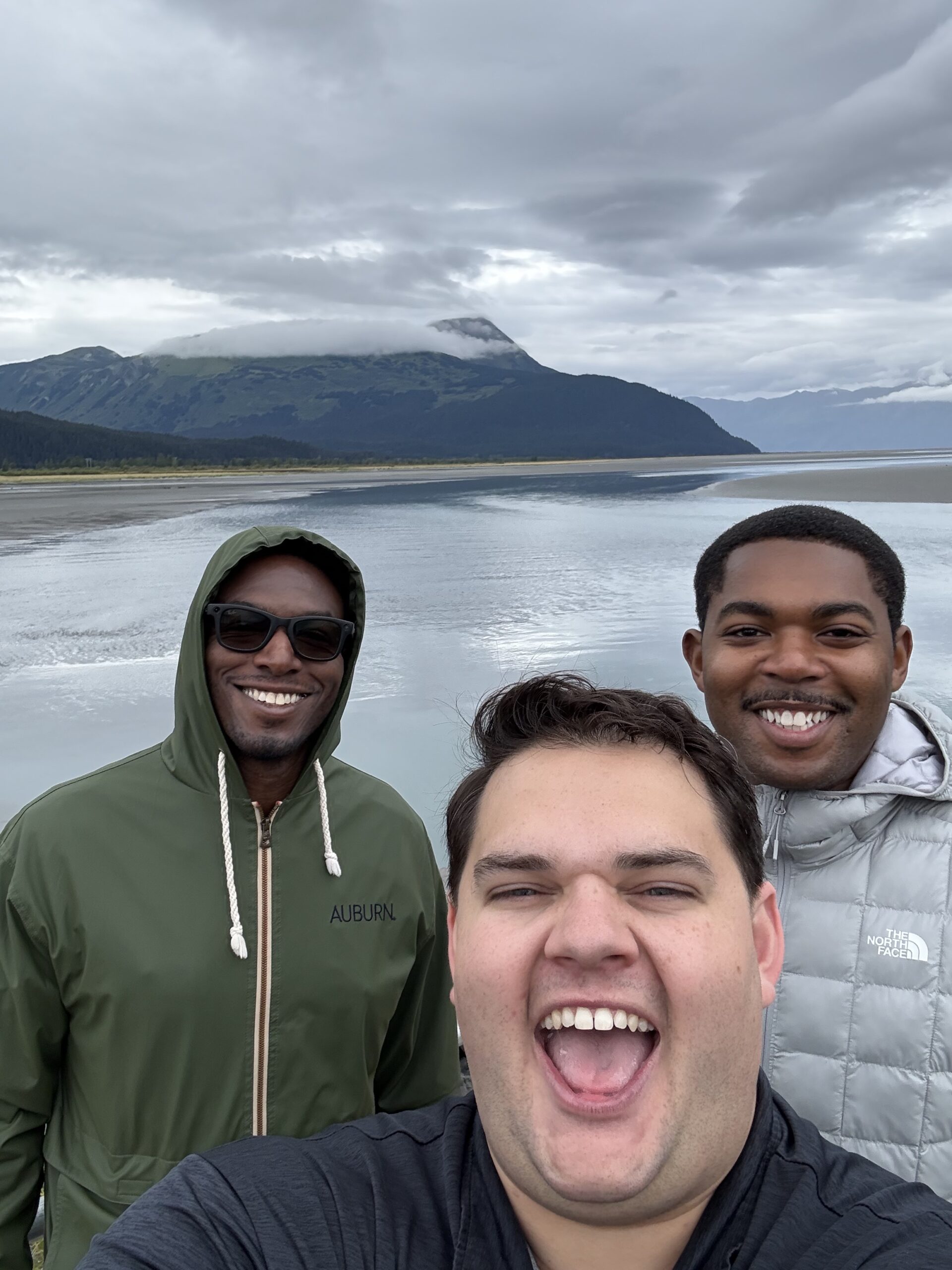
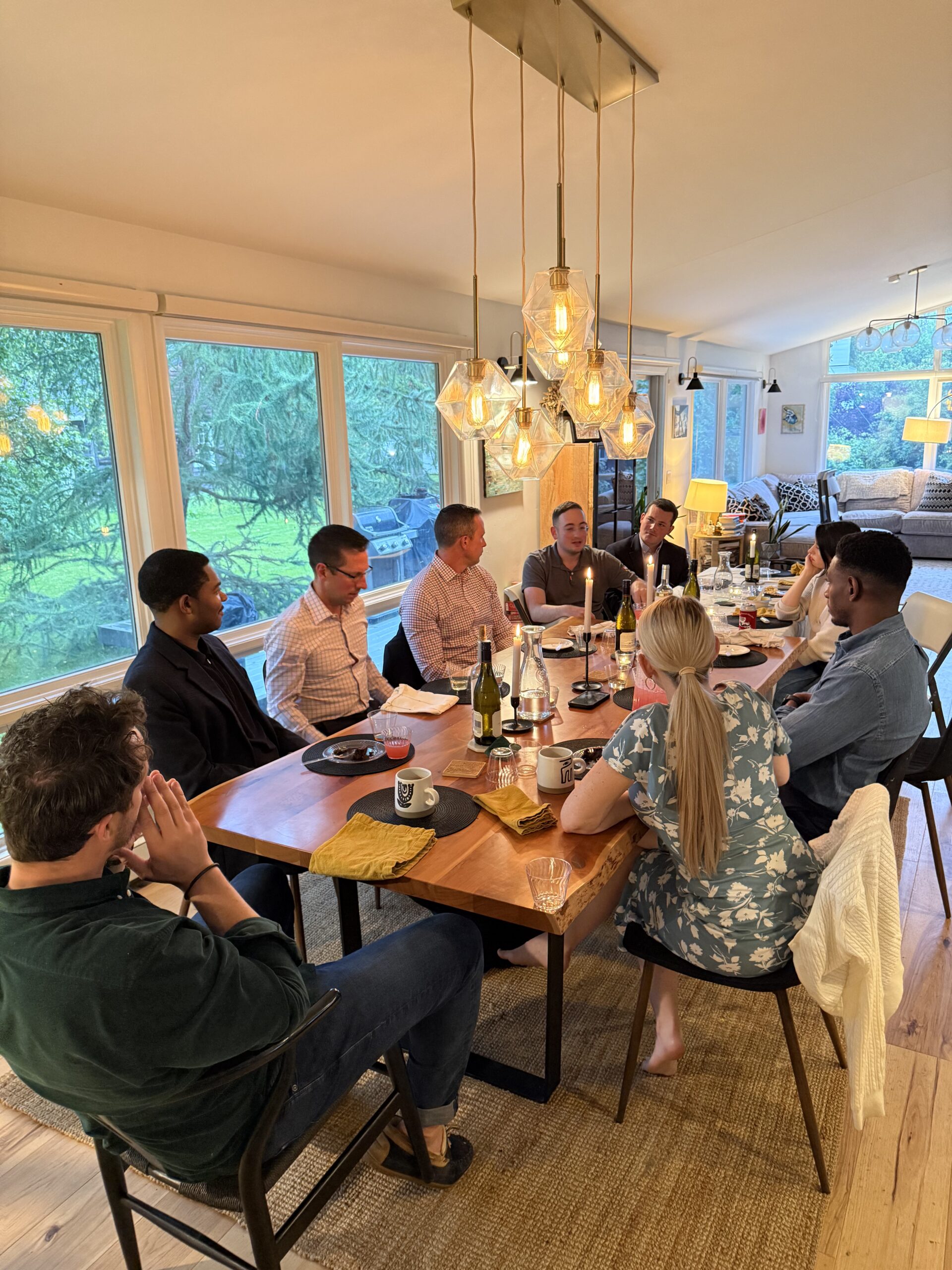
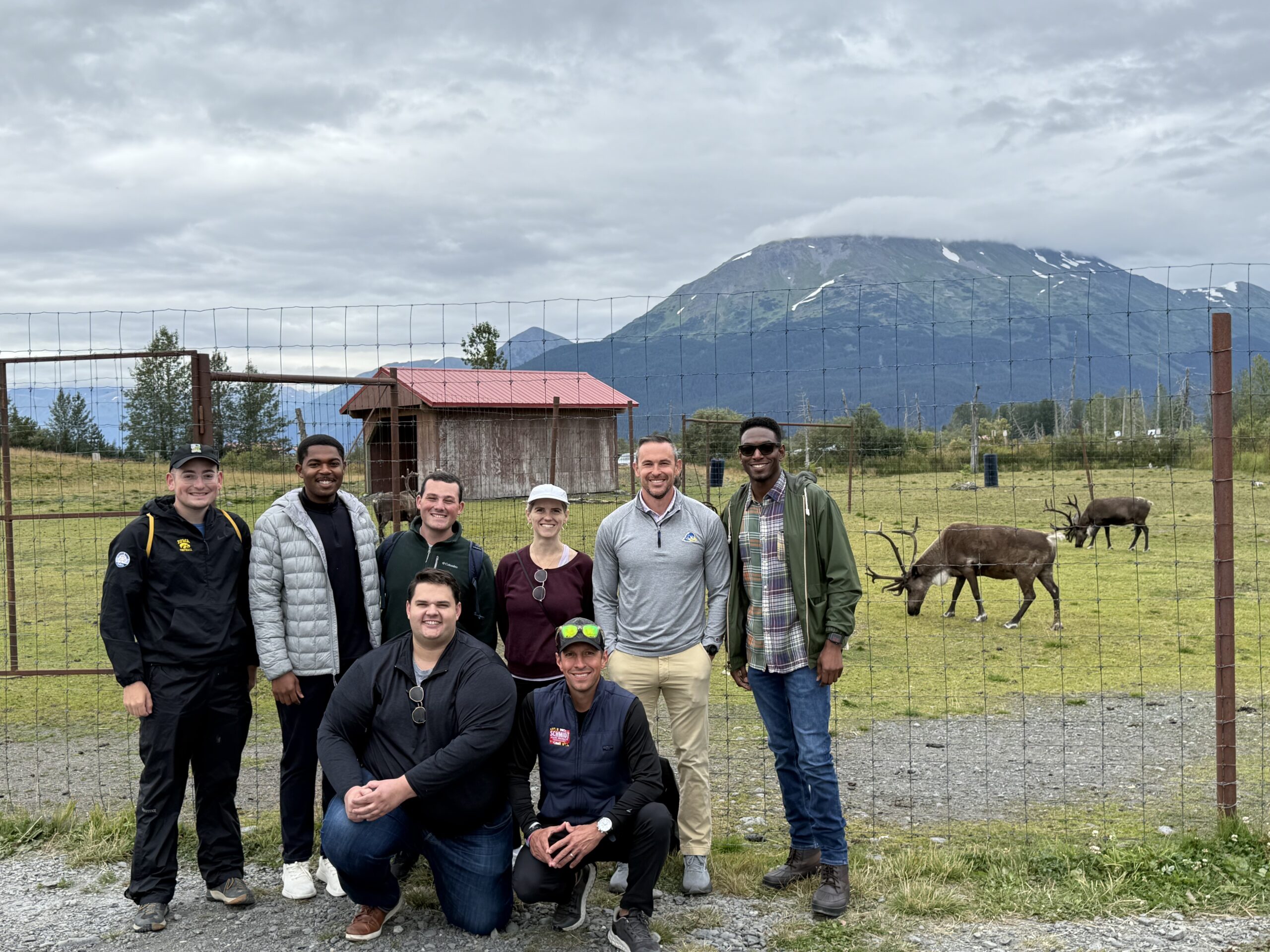
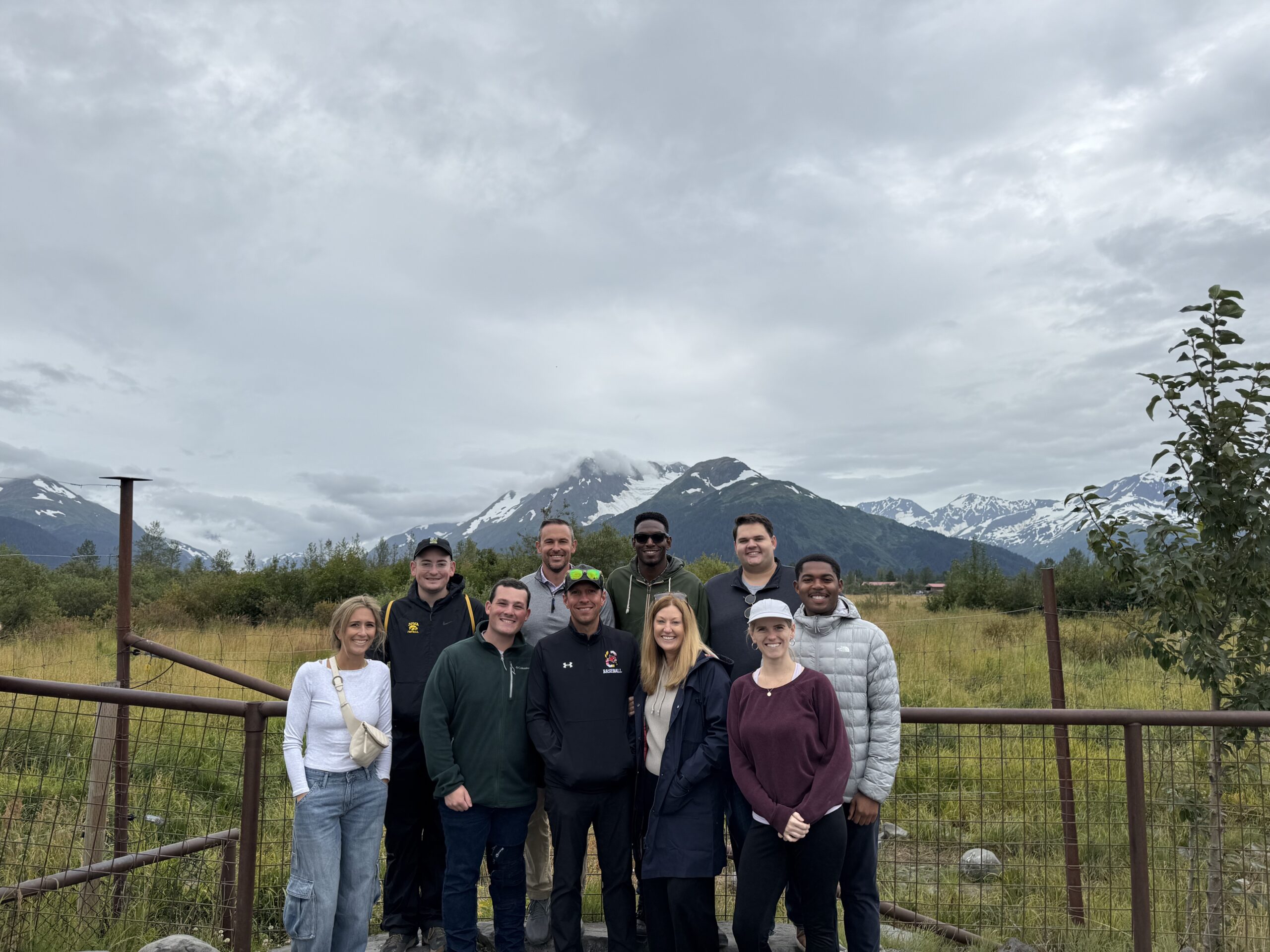






Join 1,900+ BIPARTISAN LEADERS NATIONWIDE
Be a part of a network of lawmakers committed to governing effectively, passing more representative public policy, and increasing public trust in democracy.